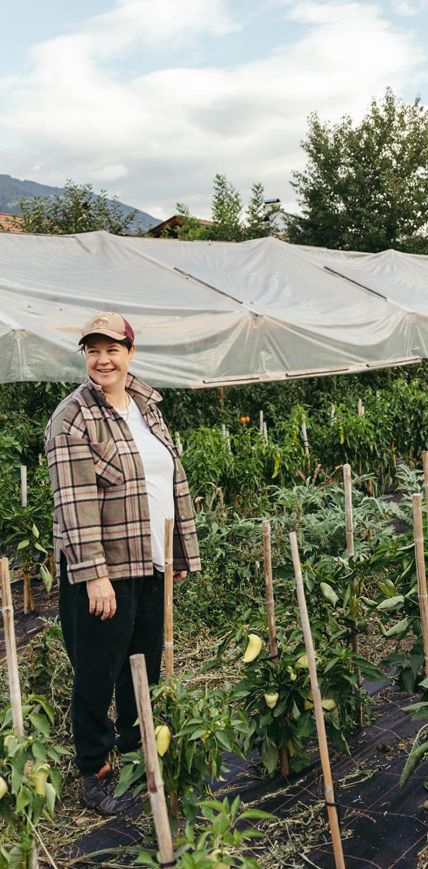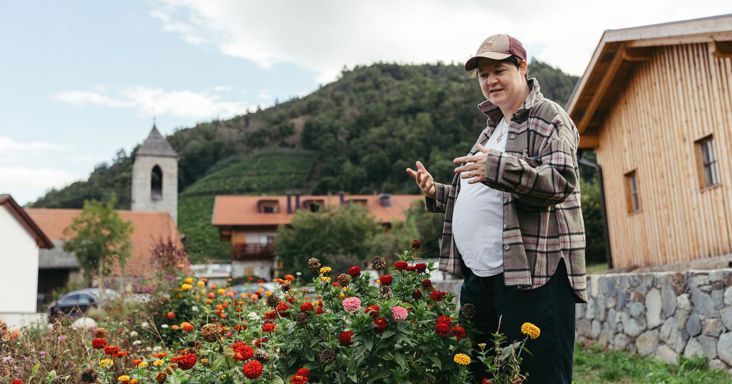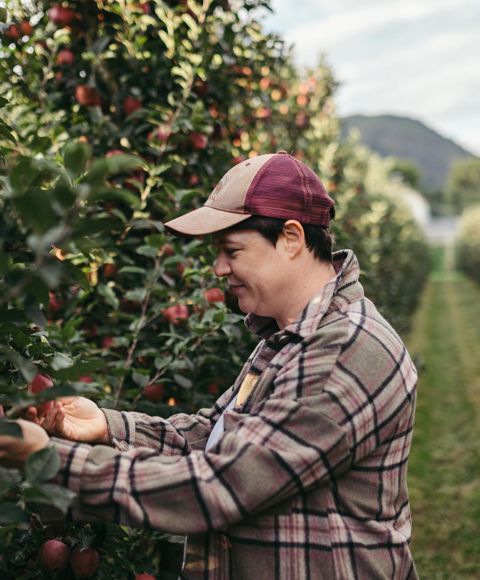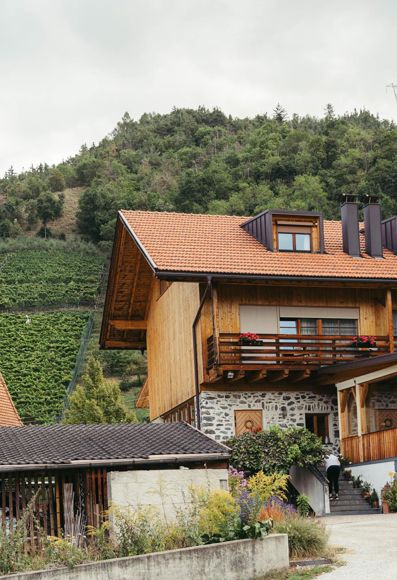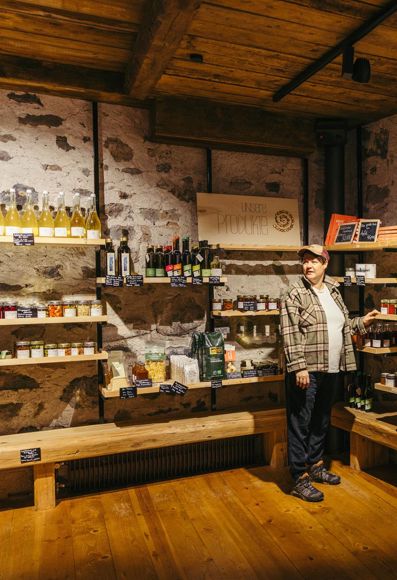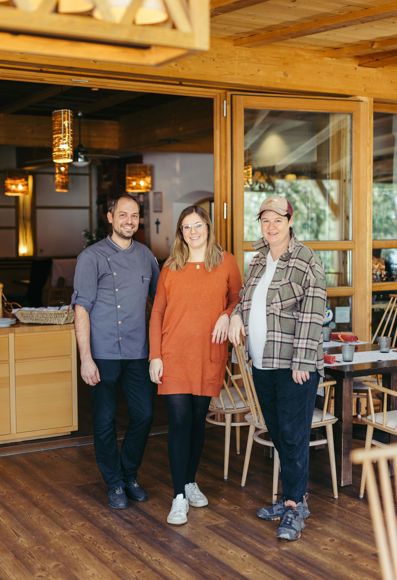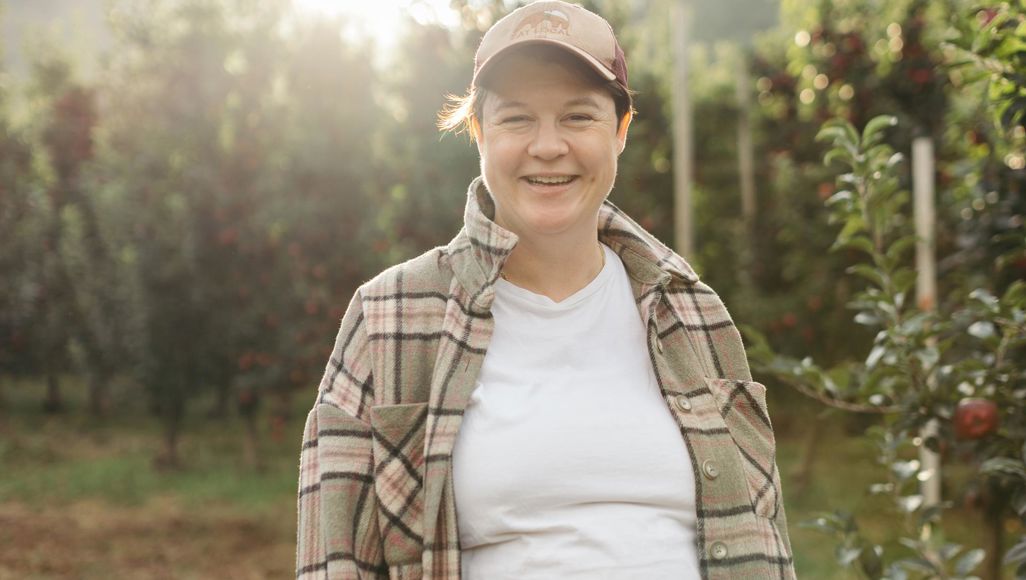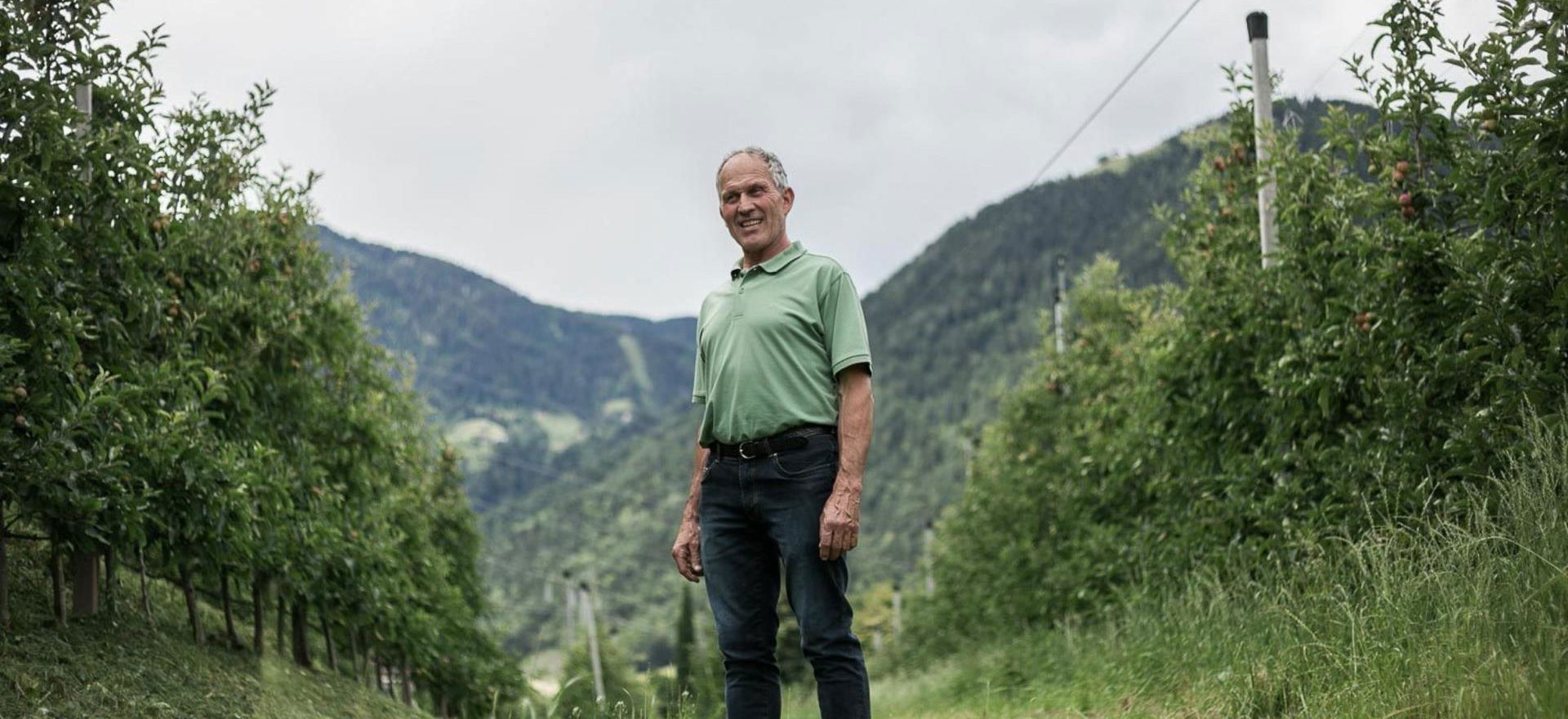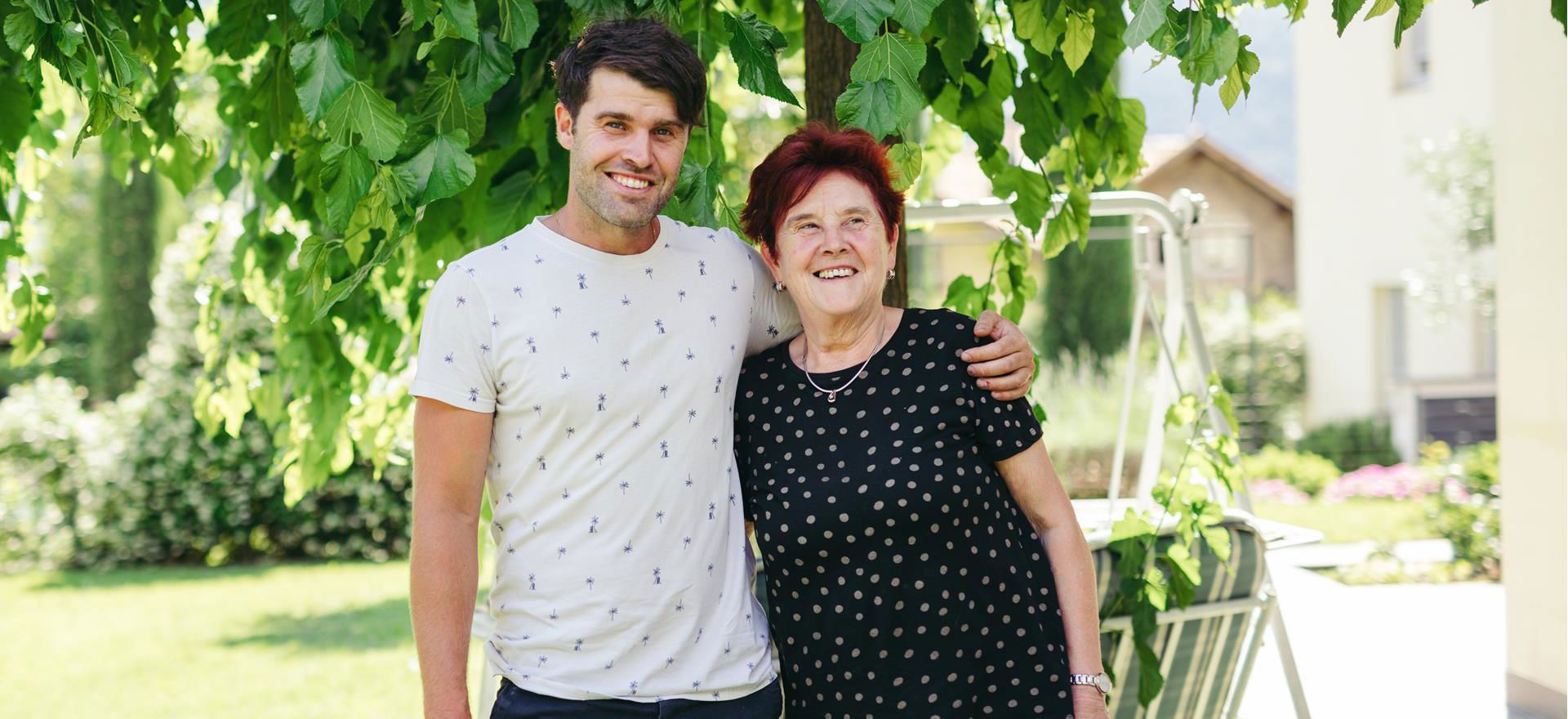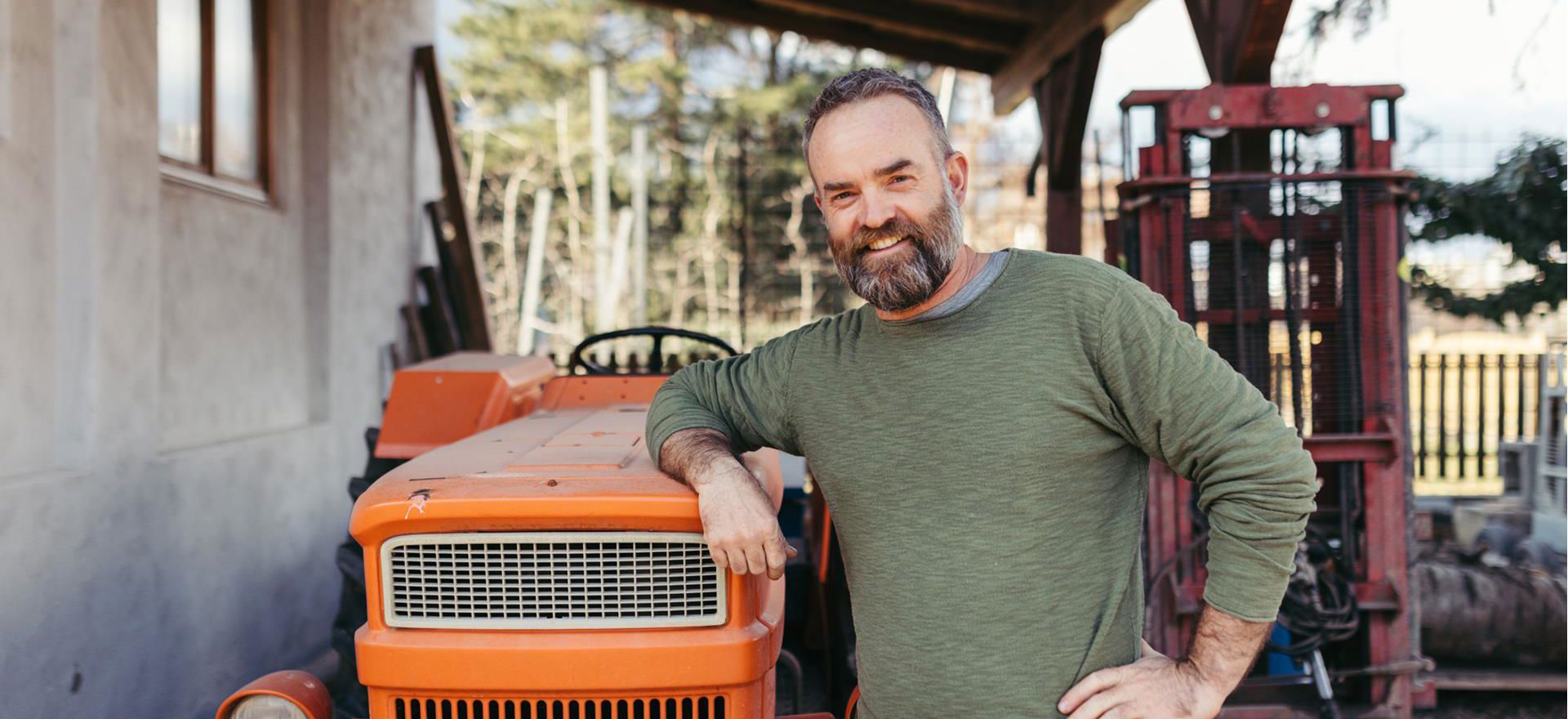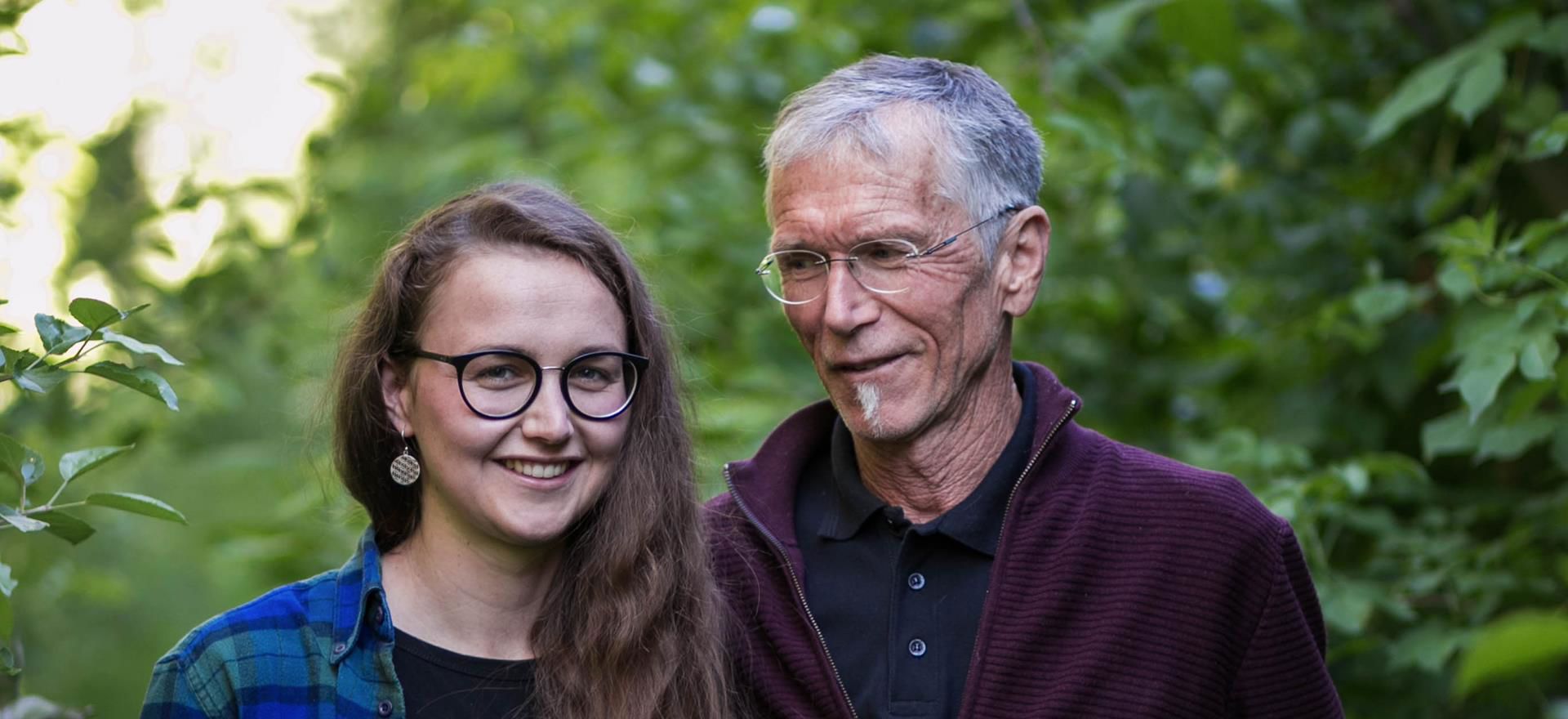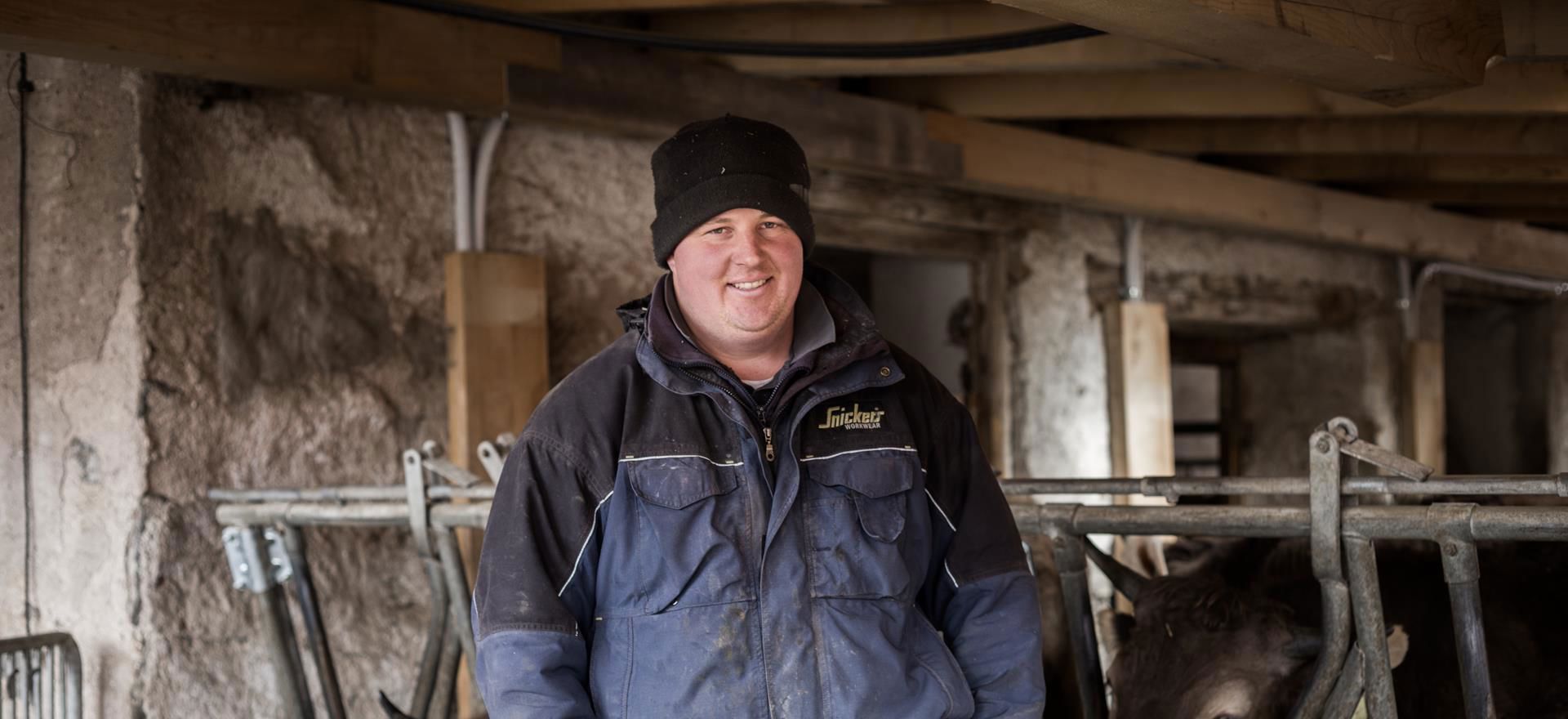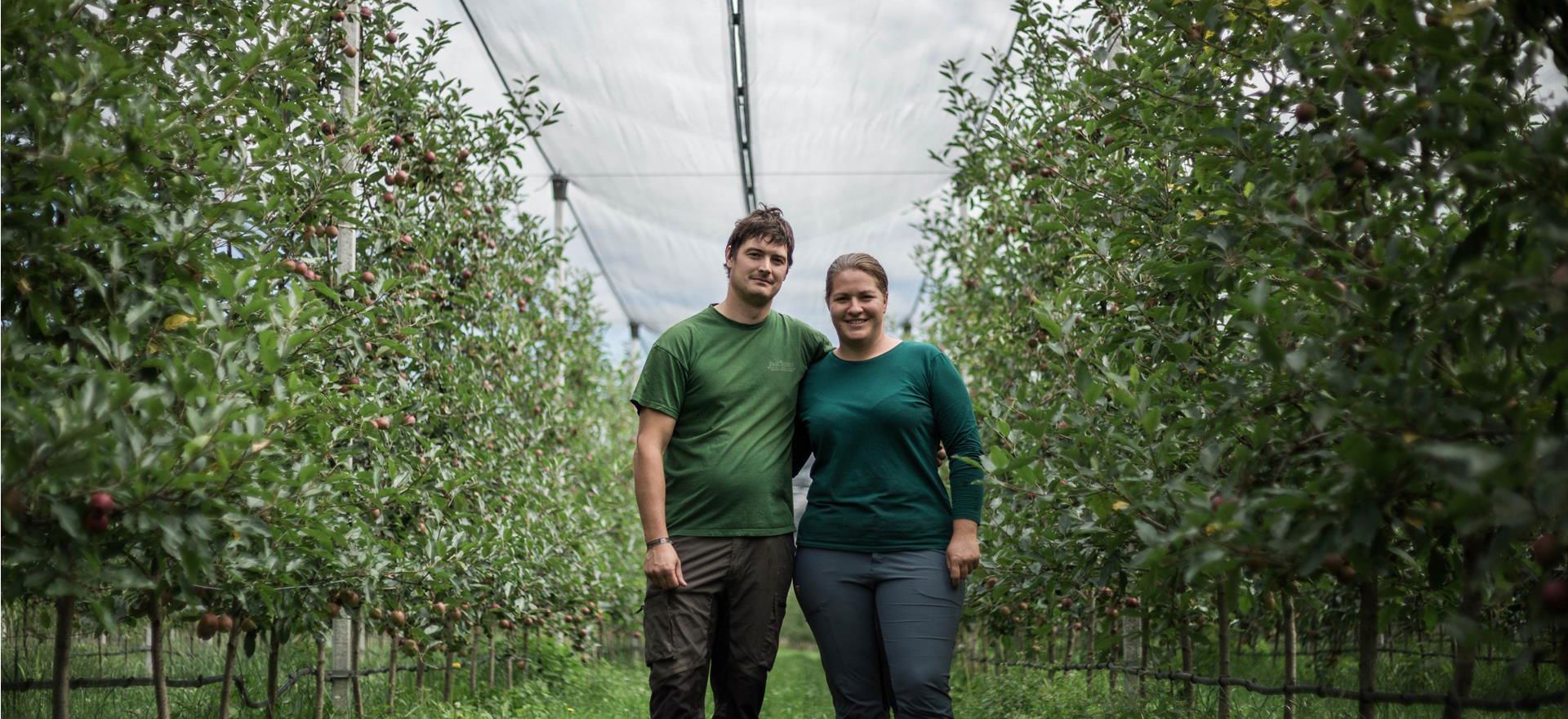Kircherhof Farm in Albeins/Albes, a stone’s throw from Brixen. It has always been a typical self-sufficient farm. They cultivate what they need for themselves. And sell what is left over.
Verena, who runs the farm today, does things just like her father did in his day. The farm was small when she was growing up: a few apple orchards, a couple of cows, sheep and a meadow with fruit trees. At some point they decided they were ready to cultivate apples like many other farmers in South Tyrol. And alongside the apples, they still cultivated veg on a grand scale. For local supermarkets and their own vegetable business.
Lots of work – but it wasn’t enough for Verena’s father. He had always wanted to have a small inn, but with four small children (one of whom in a wheelchair) his wife was always against the idea. In 2003 they renovated the barn and built flats on the first floor. And when suddenly a nice large space in the cellar became free, they thought that 2 additional flats could fill the space well. This time, Verena’s father decided against this. That was the green light for his dream of owning an inn.
Perhaps he was a bit too optimistic: after all, he was not born an innkeeper. He was a dyed-in-the-wool farmer. But the whole family learned by doing and worked together whenever they could.
Lots of work – but it wasn’t enough for Verena’s father. He had always wanted to have a small inn, but with four small children (one of whom in a wheelchair) his wife was always against the idea. In 2003 they renovated the barn and built flats on the first floor. And when suddenly a nice large space in the cellar became free, they thought that 2 additional flats could fill the space well. This time, Verena’s father decided against this. That was the green light for his dream of owning an inn.
Perhaps he was a bit too optimistic: after all, he was not born an innkeeper. He was a dyed-in-the-wool farmer. But the whole family learned by doing and worked together whenever they could.


